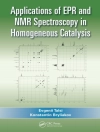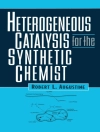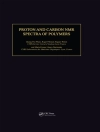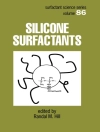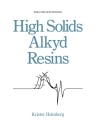This first overview of mass spectrometry-based pharmaceutical analysis is the key to improved high-throughput drug screening, rational drug design and analysis of multiple ligand-target interactions. The ready reference opens with a general introduction to the use of mass spectrometry in pharmaceutical screening, followed by a detailed description of recently developed analytical systems for use in the pharmaceutical laboratory.
Applications range from simple binding assays to complex screens of biological activity and systems containing multiple targets or ligands — all highly relevant techniques in the early stages in drug discovery, from target characterization to hit and lead finding.
Jadual kandungan
Mass Spectrometry in Bioanalysis – Methods, Principles and Instrumentation
Drug Screening Using Gel Permeation Chromatography Spin Columns Coupled with ESI-MS
ALIS: An Affinity Selection-Mass Spectrometry System for the Discovery and Characterization of Protein-Ligand Interactions
Library Screening Using Ultrafiltration and Mass Spectrometry
Continuous-Flow Systems for Ligand Binding and Enzyme Inhibition Assays Based on Mass Spectrometry
Frontal Affinity Chromatography – Mass Spectrometry for Ligand Discovery and Characterization
MS-Binding Assays – an Alternative to Radioligand Binding
Laser Desorption Assays – MALDI-MS, DIOS-MS, and SAMDI-MS
Tethering: Fragment-Based Drug Discovery by Mass Spectrometry
Interrogation of Noncovalent Complexes by ESI-MS: A Powerful Platform for High Throughput Drug Discovery
Quantification of Protein-Ligand Interactions in Solution by H/D Exchange (PLIMSTEX)
Protein-Targeting Drug Discovery Guided by Hydrogen/Deuterium Exchange Mass Spectrometry (DXMS)
Mass Spectrometry in Early Pharmacokinetic Investigations
Mengenai Pengarang
Klaus T. Wanner studied Chemistry and Pharmacy in Munich and obtained a Ph D in Pharmaceutical Chemistry in 1983. He was a postdoctoral fellow in the research group of A. I. Meyers at Colorado State University before taking up a faculty position at the Free University of Berlin. Since 1994, He is a full professor for Pharmaceutical Chemistry at the University of Munich. His main interest is in ligand and inhibitor design for GABA receptors and transporters, as well as in stereochemical aspects of structure-activity relationships.
Georg C. Höfner studied Pharmacy at the University of Munich and obtained a Ph D in Pharmaceutical Chemistry in 1989. He is a specialist on screening technology and is currently supervising the biological assay unit of the Centre of Drug Research at the University of Munich.



